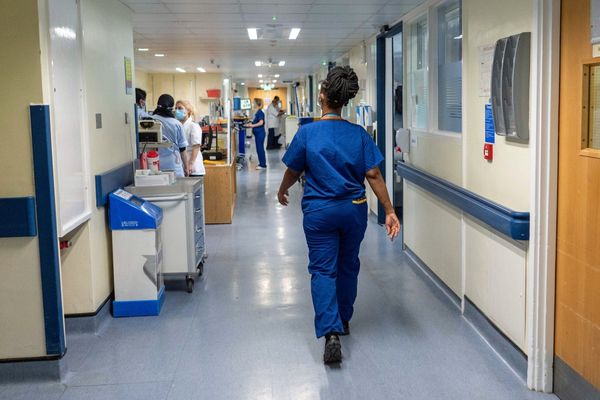Visitors from Greater Sydney will be able to visit regional New South Wales on Monday, but the end of the lockdown for those living with disabilities is the start of more risk and fear.
Kelly Cox, from the Northern Rivers, will be entering her own self-imposed quarantine.
"The things that I do and the places I go will be limited," Ms Cox said.
"When regional travel starts, again, I'll go into my own lockdown."
The Ballina woman lives with muscular dystrophy, a degenerative disease which causes progressive muscle loss.
She's double-vaccinated but doubts tourists will adhere to the the same, strict COVID-safe rules as her family.
"One of the things I'm currently focusing on is not needing to go to hospital and intensive care, when the health system's overwhelmed," she said.
"I need to make sure that everybody is double-vaccinated and that they understand COVID and the potential impact on me is not something that's just in the media. It has real life impacts."
The risk of admission to hospital and suffering complications from the virus — the Delta strain of which has killed more than 530 people in the state so far — means she faces a holiday without her husband and 17-year-old son.
"I could spend Christmas, literally, alone," Ms Cox said.
Northern Rivers communities have an uneven vaccination rate. More than 90 per cent of Ballina is double-vaccinated, but just 30 minutes away in Byron Bay that figure is less than 70 per cent.
People with Disability president Sam Connor said Ms Cox's fears are real.
"I just got a message from one of our members that says she's terrified, she's bolted down for the moment," Ms Connor said.
"People are really scared, really uncertain about what's going to happen … and there's a feeling of being devalued."
Around one in six Australians — or 4.4 million people — have a disability. Ms Connor said booster shots and compassion were needed to reach those who, like Ms Cox, are feeling left behind.
"We need to make sure everybody is able to access the third dose," she said.
"We can address those fears by making sure we listen to disabled people, and disability groups."
Vaccination protests and awkward conversations about status has made Ms Cox rethink her own community.
"It's hard when an area that you know is so community focused suddenly doesn't feel like it's there for you," she said.
"I don't feel like my community's got my back on this occasion. And that's a bit tough."
Stephen and Kathy Gregson, from Liverpool in Sydney's southwest, have every reason to be concerned about their suburb's COVID-19 future because it was hit hard during the pandemic.
Liverpool Hospital alone saw more than 12 COVID-related deaths during the cluster outbreak at the geriatric ward, after a nurse inadvertently infected patients.
Stephen lives with a neurological condition and Kathy has cerebral palsy.
The couple have been able to return to work and see friends since the double-vaccination rate tipped past 87 per cent in the past week.
"It's great," Stephen's mother, Margaret, said. "We waited until the vaccination got up to the 80 per cent before they went back to work.
"Most of the places that we go, you've got to be double-vaccinated."
That high vaccination rate — and support from the Liverpool community — have given the family confidence to step back out and for the couple to head back to tenpin bowling.
"They probably missed tenpin bowling the most," Mrs Gregson said.
"They were very active. Stephen was a swimmer, he can't swim now … but to get back out, they're anxious to get back to something like that."
For Ms Cox, it will be a while before she feels that same level of excitement of a COVID-free future.
"It's never going to be gone," she said.
"But, with the impact on the health system, I'm hoping that, maybe by January, February, it starts to ease off."







